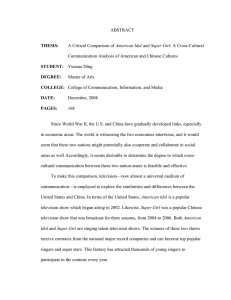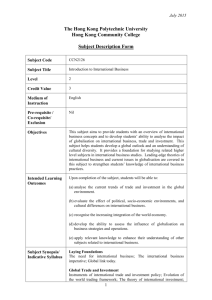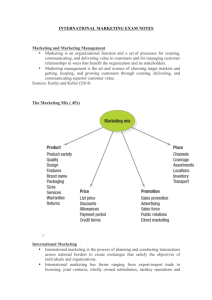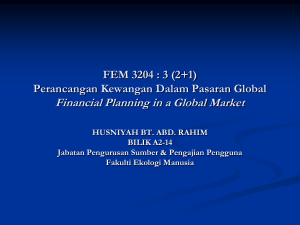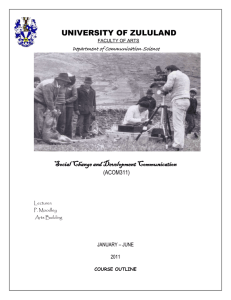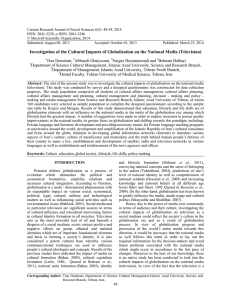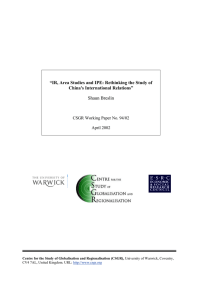Int_Unit2_Lesson2c
advertisement
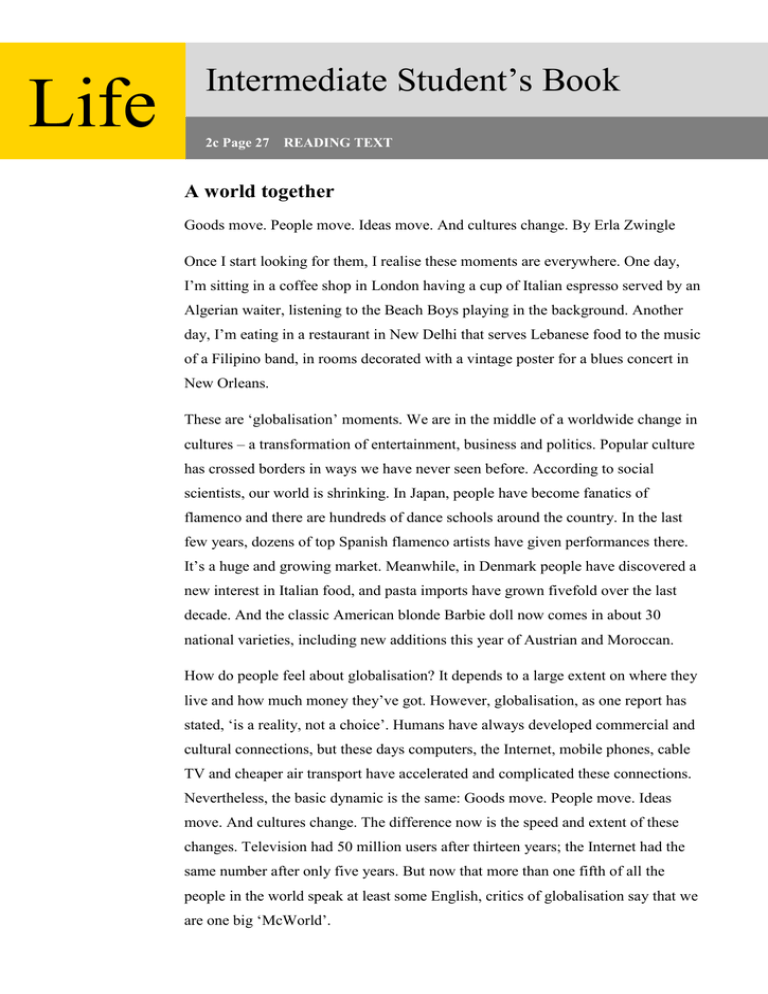
Life Intermediate Student’s Book 2c Page 27 READING TEXT A world together Goods move. People move. Ideas move. And cultures change. By Erla Zwingle Once I start looking for them, I realise these moments are everywhere. One day, I’m sitting in a coffee shop in London having a cup of Italian espresso served by an Algerian waiter, listening to the Beach Boys playing in the background. Another day, I’m eating in a restaurant in New Delhi that serves Lebanese food to the music of a Filipino band, in rooms decorated with a vintage poster for a blues concert in New Orleans. These are ‘globalisation’ moments. We are in the middle of a worldwide change in cultures – a transformation of entertainment, business and politics. Popular culture has crossed borders in ways we have never seen before. According to social scientists, our world is shrinking. In Japan, people have become fanatics of flamenco and there are hundreds of dance schools around the country. In the last few years, dozens of top Spanish flamenco artists have given performances there. It’s a huge and growing market. Meanwhile, in Denmark people have discovered a new interest in Italian food, and pasta imports have grown fivefold over the last decade. And the classic American blonde Barbie doll now comes in about 30 national varieties, including new additions this year of Austrian and Moroccan. How do people feel about globalisation? It depends to a large extent on where they live and how much money they’ve got. However, globalisation, as one report has stated, ‘is a reality, not a choice’. Humans have always developed commercial and cultural connections, but these days computers, the Internet, mobile phones, cable TV and cheaper air transport have accelerated and complicated these connections. Nevertheless, the basic dynamic is the same: Goods move. People move. Ideas move. And cultures change. The difference now is the speed and extent of these changes. Television had 50 million users after thirteen years; the Internet had the same number after only five years. But now that more than one fifth of all the people in the world speak at least some English, critics of globalisation say that we are one big ‘McWorld’. Life But I have discovered that cultures are as resourceful, resilient and unpredictable as the people who compose them. In Los Angeles, I saw more diversity than I thought possible at Hollywood High School, where the student body represents 32 different languages. In Shanghai, I found that the television show Sesame Street has been redesigned by Chinese educators to teach Chinese values and traditions. ‘We’ve taken an American box,’ one told me, ‘and put Chinese content into it.’ In India, where there are more than 400 languages and several very strict religions, McDonald’s serves mutton instead of beef and offers a vegetarian menu acceptable to even the most orthodox Hindu. So what’s next? It’s the eve of the millennium and the remote Himalayan country of Bhutan has just granted its citizens access to television – the last country on the planet to do so. The outside world has suddenly appeared in shops and living rooms across the land. What will happen now – when an isolated and deeply conservative society is exposed to hip hop and MTV? eve (n) /iːv/ the night before a significant date or day vintage (adj) /ˈvɪntɪdʒ/ from an earlier time or era


